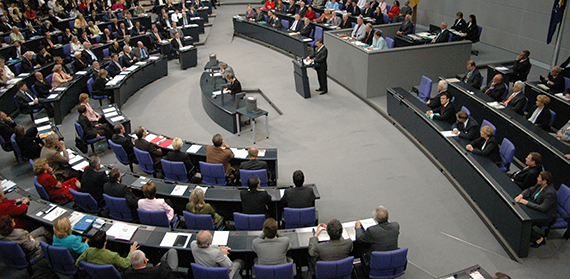Guest post by Philippa Carr
The research by the Identities and Resilience in Communities and Organisations (IRCO) team in the Centre for Psychology, Behaviour and Achievement has continued by considering a question on tax avoidance and morality which quoted Lord Fink appearing on BBC’s Question Time on 12th February 2015. In this post, we are considering the issues that arise in relation to discussing the tax activities of party donors and whether mainstream political parties are strategically avoiding talking about these issues in the countdown to the general election.
Suzanne Evans from UKIP is the first to raise the issue of party donors by describing the Lord Fink scandal as “going back to the Tory days of sleaze in the 1990s”. This allows UKIP to utilise its identity as being outside the political mainstream and thereby distancing itself from this potentially damaging issue. However, Armando Iannucci challenges Suzanne Evans by using the example of Aaron Banks, a UKIP donor with a company in Belize who avoided £19.6m of tax. Suzanne Evans manages her position by denying having any knowledge of Aaron Banks’ financial situation. Chris Bryant from Labour holds Suzanne Evans to account on the basis of her lack of knowledge and not her party’s stance on accepting donations from alleged large scale tax avoiders.
The previous day Ed Miliband as Labour leader at Prime Minister’s Questions described David Cameron as a “dodgy Prime Minister surrounded by dodgy donors”. This highlights how the political representatives on the panel are avoiding a prominent issue that was discussed the previous day and promoted in the media. UK democracy is based on an adversarial form of political dialogue and this is evidenced by the design of the Chamber placing the government and opposing parties on opposite sides facing each other.
The absence of a challenge from the present political representatives on the panel results in David Dimbleby as presenter raising Ed Davey from the Liberal Democrat’s point that “all our donors will probably have done some interesting tax avoidance” when discussing the need for reform. Ed Davey chooses to use a similar response as Suzanne Evans when he states: “We don’t actually know but it’s likely isn’t it?” This prevents a need to account for the tax status of Liberal Democrat donors although it suggests that all the political parties present are in the same situation by using a collective pronoun.
David Dimbleby is then left to continue his challenge by asking: “Why do people who dodge tax end up giving money to political parties? … What is the attraction?” This underlines the role of the non-political representatives on the panel, David Dimbleby and Armando Iannucci in holding the politicians to account for their respective party’s acceptance of donations from alleged large scale tax avoiders which could be considered morally problematic. As the general election campaigns progress, it will be interesting to see whether the strategic avoidance of this issue regarding the morality of party donors is addressed.
Links




Comments are disabled